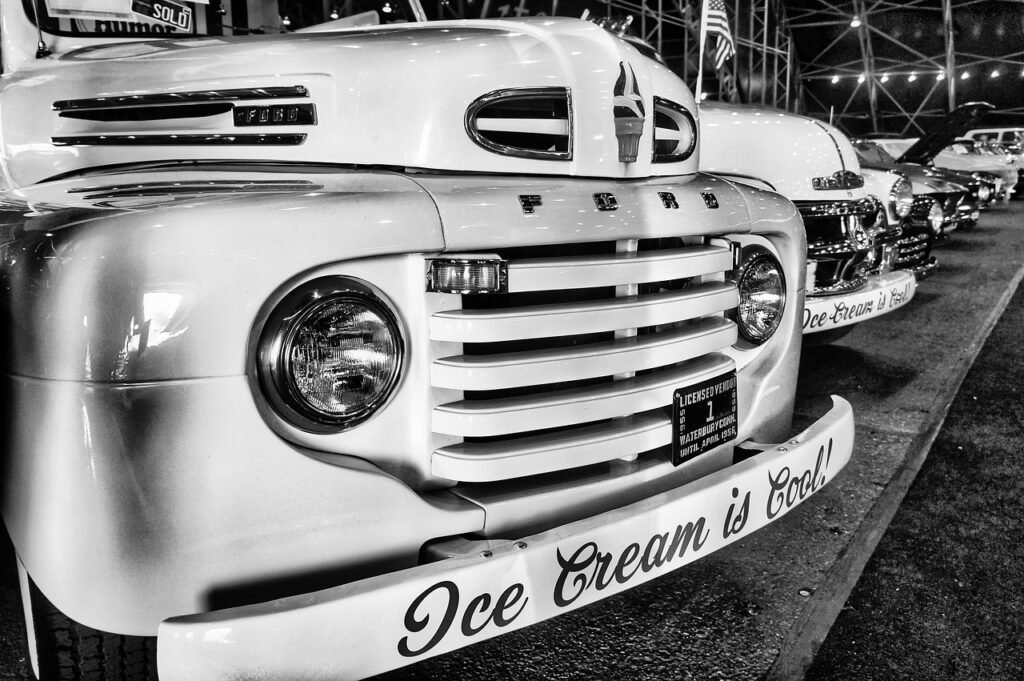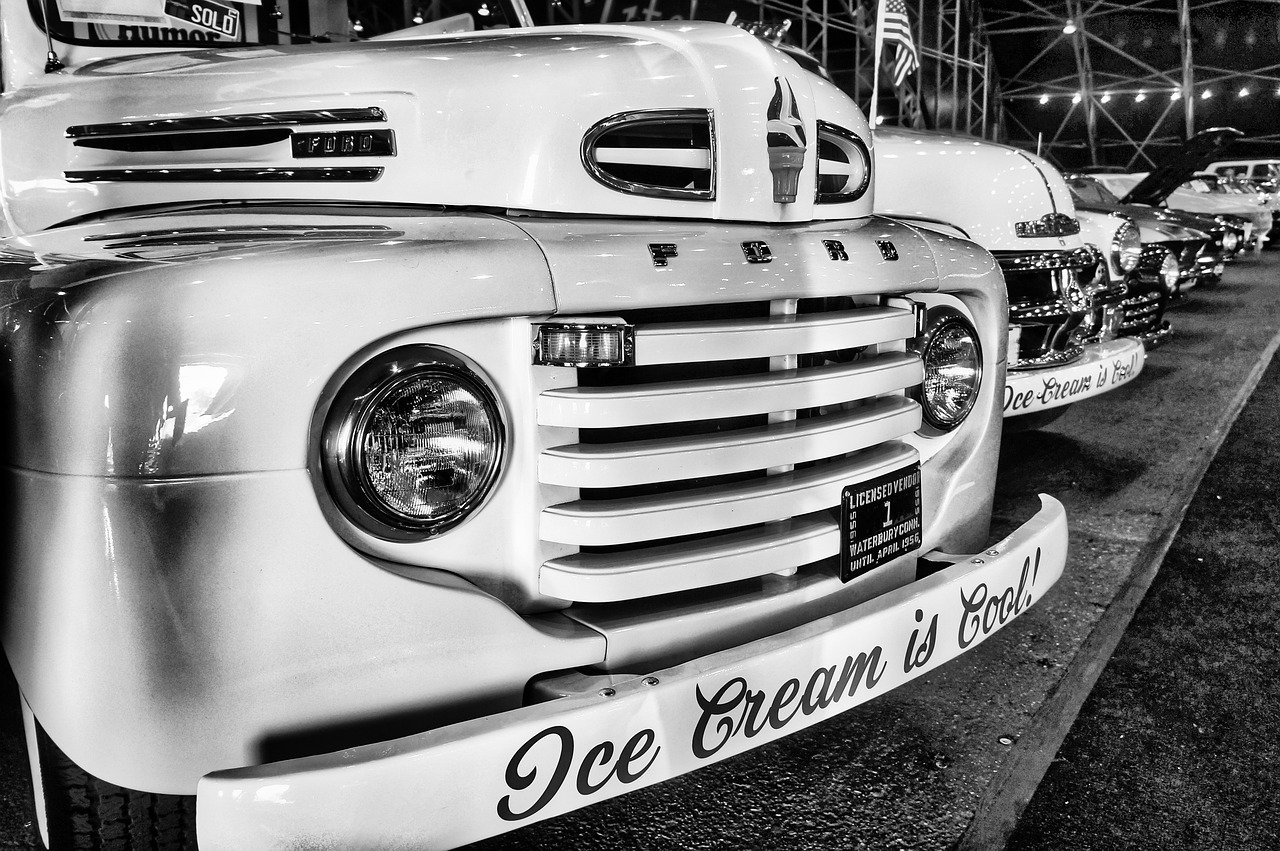If you’re looking to enter the exciting world of flipping cars, you might be wondering where to find the best auctions to buy them. Well, wonder no more! In this article, we’ve got you covered with some foolproof tips and tricks to help you locate the ultimate car auctions near you. Get ready to discover a whole new world of opportunities to buy and flip cars for profit, all while enjoying the thrill of the chase. So, buckle up and let’s get started on this exhilarating journey together!
Online Auctions
Popular online auction platforms
When it comes to finding and purchasing cars to flip, online auction platforms have become an increasingly popular option. Websites such as eBay Motors, Copart, and AutoBidMaster are some of the most well-known and widely used platforms for online car auctions. These platforms provide a wide range of vehicles, enabling you to find the right opportunity to flip a car and make a profit.
Registering on online auction websites
To participate in online car auctions, you’ll need to register on the respective websites. The registration process typically involves providing basic personal information and creating an account. You may also be required to submit identification documents and agree to the terms and conditions of the platform. Once registered, you’ll have access to browse and bid on the vehicles available for auction.
Tips for bidding on online auctions
Bidding on online auctions can be exhilarating, but it’s important to approach it with caution and strategy. Firstly, set a budget for yourself and stick to it. Research the market value of the vehicle you’re interested in to ensure you don’t overpay. It’s also wise to carefully read the vehicle’s description and inspect any available photos to assess its condition. Consider setting a maximum bid and avoid getting caught up in bidding wars that may drive up the price beyond your desired profit margin.
Researching vehicles before bidding
Before placing a bid on any vehicle, it’s crucial to conduct thorough research. Look for detailed information about the vehicle’s history, maintenance records, accidents, and any potential issues. Many online auction platforms provide vehicle history reports, which can give you valuable insights into the car’s background. Additionally, consider utilizing online forums and communities to seek advice from experienced car flippers who may have insights into specific makes and models.
Local Auction Houses
Researching local auction houses
If you prefer a more hands-on approach to purchasing cars to flip, local auction houses can be a great option. Researching and identifying reputable local auction houses in your area is the first step. Start by searching online directories, local classifieds, or reaching out to fellow car flippers for recommendations. It’s important to choose auction houses with a good reputation and a track record of hosting successful auctions with a variety of vehicles.
Attending local auctions
Attending local auctions gives you the opportunity to physically inspect the vehicles before making a purchase. Arrive early to familiarize yourself with the auction process and take your time inspecting the available cars. It’s advisable to bring a mechanic or someone knowledgeable about cars to help identify any potential issues. Take note of the vehicle’s condition, mileage, and any visible signs of damage or problems that may affect its resale value.
Building relationships with auctioneers
Building a rapport with auctioneers and staff at local auction houses can be beneficial in the long run. Introduce yourself, ask questions, and express your interest in attending future auctions. Establishing a relationship with the auctioneers may lead to insider tips on upcoming auctions or even potential discounts on certain vehicles. Maintaining a friendly and professional demeanor can go a long way in fostering these connections.
Understanding auction procedures
It’s crucial to familiarize yourself with the auction procedures before attending. Each auction house may have its own set of rules and regulations, so make sure to read and understand them. Pay attention to registration requirements, bidding increments, payment methods, and any additional fees or obligations. Being informed and prepared will help you navigate the auction smoothly and increase your chances of successfully flipping a car.

This image is property of pixabay.com.
Government Auctions
Finding government auctions
Government auctions can be a treasure trove for car flippers, as they often feature a wide range of vehicles, including fleet cars, seized cars, and surplus vehicles. To locate these auctions, start by visiting websites of government agencies such as the General Services Administration (GSA) or the Department of Defense, where you can find information on upcoming auctions. Local municipalities and law enforcement agencies may also conduct their own auctions, so keep an eye out for announcements in your area.
Understanding government auction processes
Government auctions often have specific processes that differ from other types of auctions. It’s important to familiarize yourself with these processes to increase your chances of success. Government auctions usually start with a viewing period, allowing potential buyers to inspect the vehicles. Following that, the auction itself takes place, typically in a live or online format. Be sure to understand the bidding process, payment requirements, and any additional regulations specific to government auctions.
Types of vehicles available at government auctions
One of the advantages of government auctions is the variety of vehicles available. These auctions often include cars, trucks, SUVs, motorcycles, and even specialty vehicles like boats or aircraft. Some vehicles may be well-maintained fleet cars, while others may be seized from criminal activities. Understanding the different types of vehicles that may be available at government auctions will help you target your search and identify the best opportunities for flipping cars.
Preparing necessary documentation for government auctions
Government auctions typically require specific documentation to participate. Commonly, you’ll need to provide a valid identification document, such as a driver’s license, and a proof of eligibility to participate in government auctions. These eligibility requirements may include being at least 18 years old, having a clean criminal record, or presenting a business license if you intend to purchase vehicles for commercial purposes. Ensure you have all the necessary paperwork ready before attending a government auction to avoid any last-minute complications.
Dealer Auctions
Finding dealer auctions in your area
Dealer auctions offer access to a wide range of vehicles, including trade-ins, off-lease vehicles, and even new cars. To find dealer auctions in your area, start by contacting local car dealerships or reaching out to industry professionals. They may be able to provide information on upcoming auctions or direct you to reliable sources. Additionally, online resources such as AuctionZip or Black Book Guide can help identify dealer auctions near you.
Requirements for accessing dealer auctions
Dealer auctions usually require special qualifications or credentials to participate. These auctions are primarily intended for licensed car dealers, but there may be options for individuals to attend as well. Some dealer auctions have “public” days where non-dealers can participate, while others may require you to partner with a licensed dealer as a proxy bidder. Research and understand the specific requirements of each dealer auction you wish to attend to ensure you meet the necessary criteria.
Building networks with dealers for insider access
Establishing connections with car dealers can provide valuable insider access to dealer auctions. Attend local automotive industry events, join professional organizations, and actively network with dealers in your area. Building relationships and demonstrating your genuine interest in the industry can potentially open doors to attending dealer auctions or receiving tips on upcoming opportunities. Remember to maintain professionalism and respect when interacting with dealers, as they can be key allies in your car flipping journey.
Navigating dealer auction dynamics
Dealer auctions can be fast-paced and competitive environments. Understanding the dynamics of these auctions is crucial for success. Take the time to observe and learn from experienced participants. Pay attention to the auctioneer’s style, bidding increments, and the behavior of other attendees. Develop a bidding strategy that aligns with your budget and profit goals, while also being flexible and adaptable to the rapidly changing auction dynamics. Remember, practice makes perfect, so attend as many dealer auctions as possible to refine your skills.

This image is property of pixabay.com.
Police & Seized Vehicle Auctions
Locating police and seized vehicle auctions
Police and seized vehicle auctions offer unique opportunities to purchase vehicles at significantly reduced prices. These auctions feature vehicles that have been confiscated or seized due to criminal activities, unpaid fines, or other legal situations. To locate police and seized vehicle auctions in your area, start by contacting local law enforcement agencies or searching online portals that specialize in auction listings. Keep an eye out for announcements in local newspapers or classified ads, as these auctions may not always be widely publicized.
Understanding the condition of police-seized vehicles
Before participating in police-seized vehicle auctions, it’s important to recognize that these vehicles may require significant repairs or have undisclosed issues. Unlike traditional auctions, where sellers provide detailed information, police-seized vehicles often come with limited information about their condition. It’s crucial to carefully inspect the vehicles during the viewing period and potentially bring a mechanic to assess their mechanical and structural integrity. Factoring in potential repair costs and estimating the vehicle’s resale value is essential to determine if it’s a profitable investment.
Navigating rules and regulations of police auctions
Police auctions may have specific rules and regulations that must be followed. These auctions are typically open to the public, but certain eligibility criteria, such as age restrictions or registration requirements, may still apply. It’s important to familiarize yourself with the rules and regulations governing the auction you plan to attend. Take note of any bidder registration procedures, payment methods, and deadlines for removing purchased vehicles from the auction premises. Adhering to these rules will ensure a smooth and hassle-free experience.
Bidding strategies for police and seized vehicle auctions
Bidding on police and seized vehicle auctions requires a unique strategy due to the unpredictable condition of the vehicles and the potential lack of information provided. Set a budget for yourself and identify the maximum amount you’re willing to spend on a particular vehicle, factoring in potential repair costs. Be patient and wait for the right opportunities that align with your budget and expertise. Avoid getting caught up in bidding wars and know when to walk away if the bidding surpasses your predetermined limit. Remember, the goal is to make a profit, so maintain a disciplined approach throughout the auction.
Salvage & Insurance Auctions
Finding salvage and insurance auctions
Salvage and insurance auctions offer opportunities to purchase vehicles that have been deemed total losses by insurance companies. These vehicles are often sold at significantly discounted prices, making them attractive options for car flippers. To find salvage and insurance auctions, start by researching reputable online platforms such as IAAI (Insurance Auto Auctions) or Copart. These platforms provide access to a wide range of salvage vehicles across the country and allow you to bid remotely.
Knowing the risks and rewards of salvage vehicles
Purchasing salvage vehicles can be both risky and rewarding. While the heavily discounted prices can potentially lead to high profits, salvage vehicles come with their share of challenges. It’s important to thoroughly assess the extent of the damage to the vehicle and evaluate the potential repair costs. Consider factors such as the availability of replacement parts, labor costs, and the impact on the vehicle’s resale value. If you have the knowledge and resources to restore salvage vehicles effectively, they can be a lucrative investment opportunity.
Understanding insurance auction procedures
Each insurance auction platform may have its own set of procedures, so it’s essential to familiarize yourself with the specific rules and regulations. Before participating in an insurance auction, carefully read the terms and conditions provided by the platform. Pay attention to any requirements for registering as a bidder, submitting bids, and completing the purchase process. It’s also advisable to thoroughly review the vehicle listing, including its condition report, to gain insight into the extent of the damage and any additional information provided by the insurance company.
Evaluating salvage vehicles prior to purchase
Prior to placing a bid on a salvage vehicle, it’s critical to assess its condition as accurately as possible. While online auction platforms often provide photos and condition reports, it’s recommended to inspect the vehicle in person whenever possible. Physical inspection allows you to identify hidden damage, rust, or other issues that may impact the feasibility of repairing the vehicle. If you have limited automotive knowledge, consider seeking guidance from a professional mechanic or a trusted expert in salvage vehicle restoration to ensure you’re making an informed decision.

This image is property of pixabay.com.
Bank Repossession Auctions
Locating bank repossession auctions
Bank repossession auctions can offer great opportunities to acquire vehicles directly from financial institutions at competitive prices. To find bank repossession auctions, start by contacting local banks or credit unions to inquire about upcoming auctions. Some financial institutions may have their own auction websites or work with specialized auction companies to facilitate the sale of repossessed vehicles. Keep an eye on online auction listings and local classifieds as well, as these may feature upcoming bank repossession auctions.
Researching repossessed vehicles
Before participating in bank repossession auctions, it’s crucial to research the vehicles that will be available for bidding. Repossessed vehicles can vary greatly in terms of condition, make, model, and mileage. Use online resources to gather information about the market value of similar vehicles, including pricing trends and resale potential. Understand that repossessed vehicles may have been subject to neglect or misuse, so carefully assess their condition during the viewing period and factor in any necessary repairs into your bidding strategy.
Understanding the bidding process for bank repossession auctions
Bank repossession auctions generally follow a structured bidding process. Familiarize yourself with the specific procedures of each auction you plan to attend. You may need to register as a bidder, provide identification, and agree to the auction terms and conditions. The auction itself may include both live bidding and online bidding, depending on the platform. Understand the bidding increments and be prepared to act quickly if you’re interested in a particular vehicle, as bank repossession auctions can be highly competitive.
Considerations when purchasing repossessed cars
Purchasing repossessed cars can be a lucrative venture, but it’s essential to consider a few key factors. Firstly, be prepared for potential competition, as other bidders may also recognize the value of repossessed vehicles. Secondly, factor in any necessary repairs or maintenance costs when determining your maximum bid. Lastly, research the vehicle’s history as much as possible, considering factors such as the reason for repossession and the number of previous owners. By gathering as much information as possible, you can make an informed decision and increase your chances of success.
Wholesale Dealer Auctions
Finding wholesale dealer auctions
Wholesale dealer auctions offer an excellent opportunity for car flippers to access a wide variety of vehicles directly from manufacturers, rental car companies, and car dealerships. To find these auctions, start by contacting local car dealerships or manufacturers to inquire about upcoming wholesale auctions. Additionally, online resources such as AuctionAccess or Manheim can provide listings and information about scheduled wholesale dealer auctions in your area.
Qualifications for attending wholesale dealer auctions
Wholesale dealer auctions usually require participants to meet specific qualifications. These auctions are primarily intended for licensed car dealers or individuals associated with the automotive industry. However, some auctions may have public or non-dealer days where non-professionals can participate. Research the specific requirements and qualifications of each auction before attending to ensure you meet all necessary criteria.
Tips for buying wholesale cars for flipping
When attending wholesale dealer auctions for the purpose of flipping cars, there are a few tips to keep in mind. Firstly, carefully assess the vehicle’s overall condition, paying close attention to its mechanical and cosmetic aspects. Remember that these vehicles typically don’t come with warranties or guarantees, so a thorough inspection is crucial. Additionally, research the market value of the specific make and model to ensure you’re not overpaying. Finally, consider the demand and popularity of the car within the resale market to maximize your potential profit.
Understanding the wholesale dealer auction environment
Wholesale dealer auctions can be fast-paced and highly competitive environments. Multiple vehicles may be up for auction simultaneously, and the bidding process may move quickly. Prioritize the vehicles you’re interested in and stay focused on your budget and profit goals. Develop a bidding strategy that allows you to act decisively but avoid bidding beyond your predetermined limit. Pay attention to the auctioneer’s pace, bidding increments, and the behavior of other participants to navigate the auction dynamics successfully.

Online Classifieds
Exploring online classified websites
Online classified websites offer a convenient platform for finding vehicles that are being sold by individuals rather than at formal auctions. Websites such as Craigslist, Autotrader, and Facebook Marketplace are popular options for browsing through classified car listings. These websites allow sellers to provide detailed descriptions, photos, and contact information, making it easier for you to connect with potential sellers and negotiate prices.
Contacting sellers and asking relevant questions
When reaching out to sellers from online classified websites, it’s essential to be polite and professional. Start by introducing yourself and expressing your interest in the specific vehicle. Ask relevant questions about the car’s condition, maintenance history, and reason for selling. Inquire about any potential issues, such as accidents or mechanical problems, to gather as much information as possible. Building a rapport with the seller can also increase your chances of negotiating a favorable price.
Negotiating prices on classified car listings
Negotiating prices on classified car listings requires tact and research. Before starting negotiations, research the market value of similar vehicles to determine a fair and reasonable offer. Approach the negotiation process respectfully, understanding that the seller may have their own expectations. Be prepared to back up your offer with solid reasoning, such as pointing out any flaws or necessary repairs. Stay open to reasonable counteroffers, and aim to find a mutually beneficial agreement that aligns with your profit margin.
Verifying vehicle history and condition
When purchasing a vehicle through online classifieds, it’s crucial to verify its history and condition as accurately as possible. Request the vehicle identification number (VIN) from the seller and utilize online resources such as Carfax or AutoCheck to obtain the vehicle’s history report. Carefully review the report for any red flags, such as accidents, salvage titles, or odometer discrepancies. If feasible, arrange for a professional inspection or consider utilizing mobile inspection services that can thoroughly evaluate the vehicle’s mechanical and structural condition.
Networking and Word of Mouth
Building a network of car flippers and enthusiasts
Networking with fellow car flippers and enthusiasts can provide valuable insights, advice, and potential leads on auction opportunities. Attend local car meet-ups, automotive industry events, and join online communities or forums dedicated to car flipping. Engage in conversations, share your knowledge and experiences, and be open to learning from others. Building a network of like-minded individuals who share your passion for cars can help expand your opportunities and foster a supportive community.
Attending car meet-ups and events
Attending car meet-ups and events is not only a great way to showcase your own vehicles or admire others but also an opportunity to network with individuals who may have insider knowledge or connections to auctions. Strike up conversations, ask questions, and express your interest in flipping cars. You never know when someone may have leads on upcoming auctions or be willing to share their experiences and expertise. Embrace the camaraderie of the car enthusiast community and actively engage in events to maximize your networking potential.
Asking for leads and referrals
Don’t be shy about asking for leads or referrals within your network. Make it clear that you’re actively looking for auction opportunities to flip cars and would appreciate any information or insights. Whether it’s fellow car flippers, car club members, or industry professionals, tapping into their networks can often open doors to hidden auction gems or introductions to key contacts. Be genuine and grateful for any assistance you receive, as nurturing your relationships will make others more inclined to help you succeed.
Sharing knowledge and resources with the community
Just as you seek knowledge and guidance from others, don’t hesitate to share your own experiences and resources with the car flipping community. Contribute to online forums, write blog posts or articles, or even host workshops or seminars if you’re particularly knowledgeable in a specific area. By sharing your expertise and offering support to others, you not only contribute to the community but also enhance your own reputation as a trusted and valuable resource. Building a mutually beneficial network involves a give-and-take mindset, so always look for ways to offer value in return.


